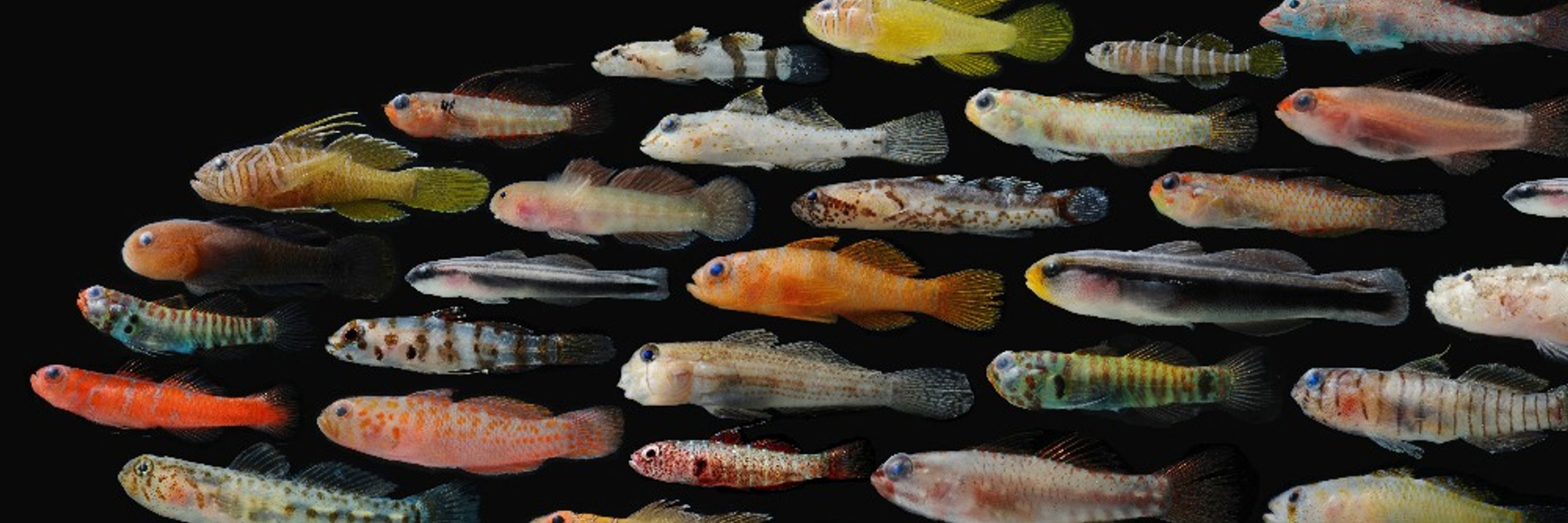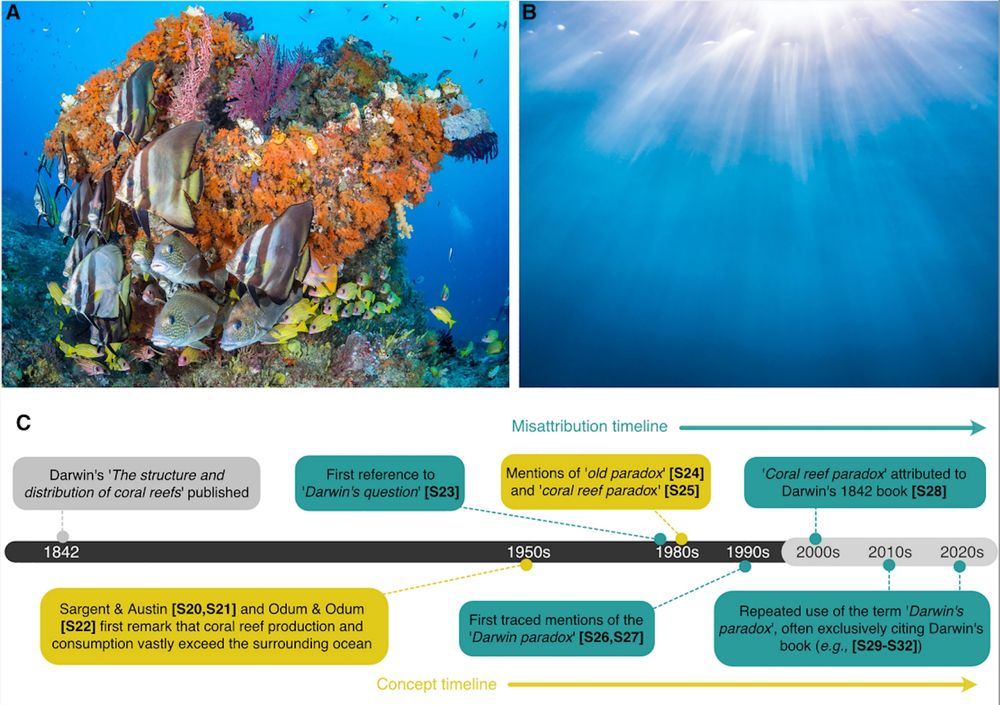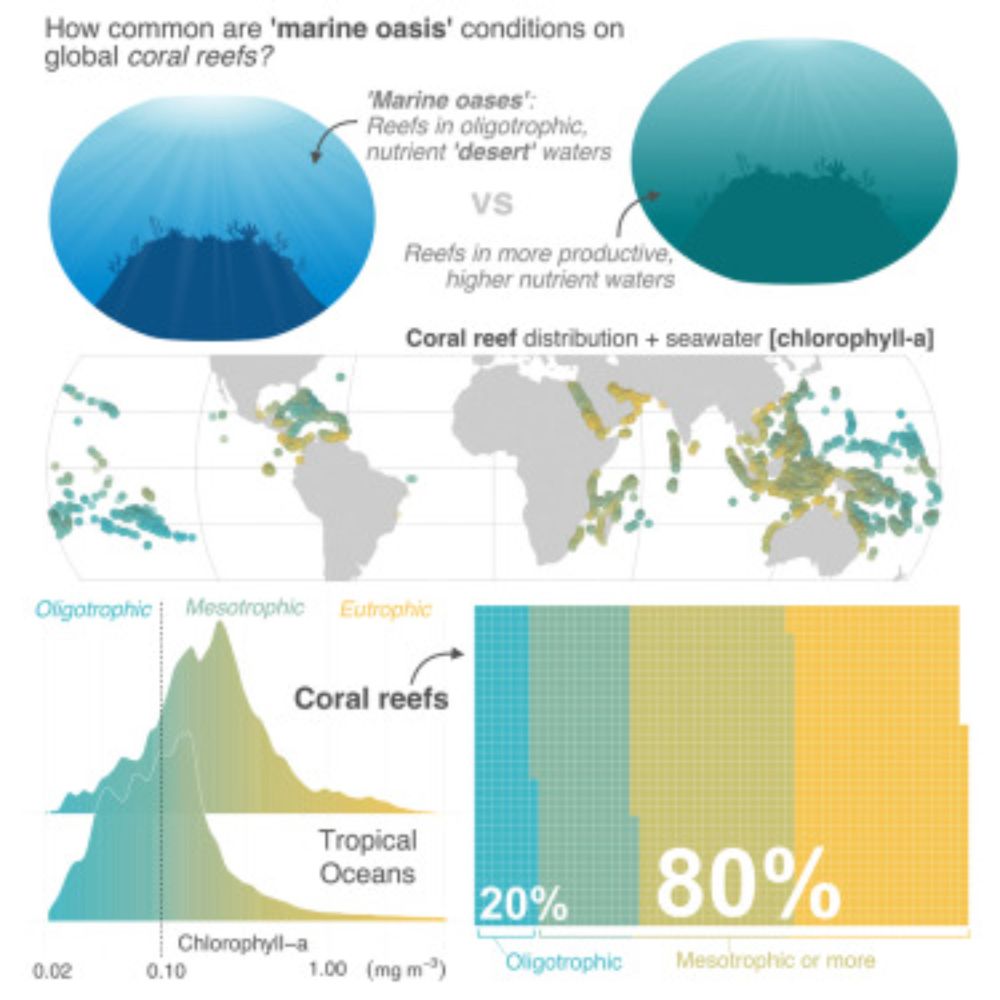
Simon J. Brandl
@gobyone.bsky.social
Assistant Professor at UT Austin's Marine Science Institute | Fishes, functions, and marine ecosystems | he/his | Views are my own
www.fishandfunctions.com 🐡📉
www.fishandfunctions.com 🐡📉
Yes, @joey-squishfish.bsky.social – this is fossilized marine lint! 😁
June 10, 2025 at 1:34 PM
Yes, @joey-squishfish.bsky.social – this is fossilized marine lint! 😁
A detailed summary of our paper's results is provided below. This work was funded by a Branco Weiss Fellowship and the US National Science Foundation.
Photos by @jordancasey.bsky.social
www.eurekalert.org/news-release...
Photos by @jordancasey.bsky.social
www.eurekalert.org/news-release...

New research challenges long-held belief of coral reefs as oases in marine deserts
The popular notion that coral reefs are often surrounded by "deserts", devoid of nutrients and plankton, isn't true.
www.eurekalert.org
June 6, 2025 at 1:32 PM
A detailed summary of our paper's results is provided below. This work was funded by a Branco Weiss Fellowship and the US National Science Foundation.
Photos by @jordancasey.bsky.social
www.eurekalert.org/news-release...
Photos by @jordancasey.bsky.social
www.eurekalert.org/news-release...
Scientific semantics aside, why does this matter? It matters because reefs clearly depend much more on their surrounding oceans than commonly assumed. As we alter not just reefs themselves, but also broader dynamics like nutrients, currents, and plankton blooms, reefs will have to cope with both.


June 6, 2025 at 1:32 PM
Scientific semantics aside, why does this matter? It matters because reefs clearly depend much more on their surrounding oceans than commonly assumed. As we alter not just reefs themselves, but also broader dynamics like nutrients, currents, and plankton blooms, reefs will have to cope with both.
Not really, because the oceans around reefs aren't deserts. Most reefs do not occur in conditions we would define as nutrient-poor. They thrive instead across a vast spectrum of oceanographic regimes, and 80% of reefs are surrounded by waters we would generally classify as meso- or eutrophic.

June 6, 2025 at 1:32 PM
Not really, because the oceans around reefs aren't deserts. Most reefs do not occur in conditions we would define as nutrient-poor. They thrive instead across a vast spectrum of oceanographic regimes, and 80% of reefs are surrounded by waters we would generally classify as meso- or eutrophic.
Does that mean it's all wrong? Not quite, because coral reefs are indeed ridiculously productive. We compared net primary production across Earth's ecosystems and found that reefs outpace almost all other systems in their ability to produce biomass. They're absolute powerhouses. Dare I say, oases?


June 6, 2025 at 1:32 PM
Does that mean it's all wrong? Not quite, because coral reefs are indeed ridiculously productive. We compared net primary production across Earth's ecosystems and found that reefs outpace almost all other systems in their ability to produce biomass. They're absolute powerhouses. Dare I say, oases?
First, Darwin never said nothing about reef productivity & nutrients. In fact, old Chucky D didn't have the basic oceanographic knowledge to arrive at the paradox conclusion. Instead, it arose after the first coral reef ecosystem metabolism studies in the 1950s and was misattributed in the 80s/90s


June 6, 2025 at 1:32 PM
First, Darwin never said nothing about reef productivity & nutrients. In fact, old Chucky D didn't have the basic oceanographic knowledge to arrive at the paradox conclusion. Instead, it arose after the first coral reef ecosystem metabolism studies in the 1950s and was misattributed in the 80s/90s
Our new paper in @currentbiology.bsky.social, led by @renatoamorais.bsky.social, examined the history and veracity of the alleged paradox and its patron Charles Darwin.
www.cell.com/current-biol...
@oclaripv.bsky.social
@paulinenarvaez.bsky.social
@utaustin.bsky.social
@psl-univ.bsky.social
www.cell.com/current-biol...
@oclaripv.bsky.social
@paulinenarvaez.bsky.social
@utaustin.bsky.social
@psl-univ.bsky.social

Rethinking Darwin’s coral reef paradox and the ubiquity of “marine oases”
Morais et al. evaluate the history of Darwin’s paradox and the prevalence of oligotrophic
conditions among coral reefs. They find no link between Darwin and the marine oasis
concept. Most coral reefs ...
www.cell.com
June 6, 2025 at 1:32 PM
Our new paper in @currentbiology.bsky.social, led by @renatoamorais.bsky.social, examined the history and veracity of the alleged paradox and its patron Charles Darwin.
www.cell.com/current-biol...
@oclaripv.bsky.social
@paulinenarvaez.bsky.social
@utaustin.bsky.social
@psl-univ.bsky.social
www.cell.com/current-biol...
@oclaripv.bsky.social
@paulinenarvaez.bsky.social
@utaustin.bsky.social
@psl-univ.bsky.social


